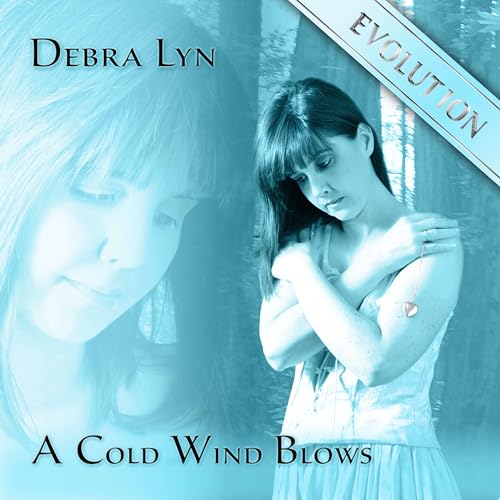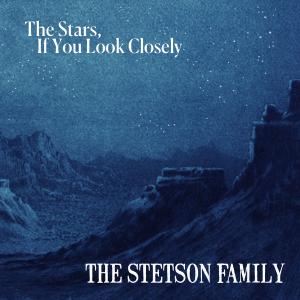

© 2025
All Rights Reserved
Picks & Pans
A little "housekeeping": I welcome
the receipt of and will review just about all NEW product received.
(Contact me for an explanation if you think there might be extenuating
circumstances.) Major or independent label. It makes no
difference so long as the the product is available on amazon.com.
That said, my unique, open door policy requires, in fairness to all, that product be evaluated and reviews posted in the order in which submissions have been received.
Ground rules: I don't do
downloads nor do I review Christmas releases. No vinyl. CDs and DVDs only, please.
Please consider sampling/and or making a purchase through its Amazon cover art link. Commissions I earn through your purchases make updates possible.
Stacy's Ratings
*****Outstanding
**** Good
*** Promising
** Fair
*Makes A Good Coaster
Trace Nixon
Hand Me Down Name
*****

Listen no further and it's evident that Nixon's presentation is a team effort involving the finest musicians, radio-friendly lyrics and a singer who has what it takes, with the right breaks, to have a sustainable career in a highly competitive genre.
The EP's title song, yet another tribute, of sorts, is more personal in nature, tinged as it is with the mixed blessings of a namesake.
"Second Hand Hold On Me" (which Trace co-wrote with Ashley Grant) warns of differing expectations of instant mutual attraction.
"Ready for the Takin' (When You Are)" is an alternately flirty and deadly serious invitation. The mixed bag of emotional lyrics was written by Trace and his dad, Nick Nixon. (The latter, who is very much alive, not to be confused with the late country singer of the same name.)
The EP's closer, "Love Lost Has Been" is as quirky as its title. Does a rejected young lover, drowning his sorrows at a bar, listen to the cautionary wisdom of an older stranger who has walked in the younger dude's shoes?
Give this one- and the four gems that precede it- a listen. Call it time well spent!
.
Daryl Mosley
Long Days & Short Stories
Rating
****
Daryl
Mosley’s fourth solo Pinecastle Records
album, like its predecessors, accentuates Mosley’s penchant for original
material highlighted by nostalgic story songs.
Daryl has built his multi-genre
following of bluegrass, Americana, country and Christian music fans with not
only a yearning for days gone by, but with themes of appreciation for life’s
blessings. Listeners feel the fervor of Mosley’s conviction that, despite
obstacles, these gifts remain in abundance.
Mosley's unwavering faith is
especially apparent in two of the 11 tracks found here: ''When I Can’t Reach Up'' (featuring Jeff and Sheri Easter) and ''You Never Gave Up on Me'' (featuring
New Tradition).
Since Daryl initially caught
bluegrass music fans’ attention as New Tradition’s lead vocalist, the
collaboration is a musical reunion extending to the trio’s accompanying Mosley
on "Still the Sold Rock'' and I’m Still Here.
The latter, the album’s closer, is a
bonus track essentially augmenting Daryl's earlier (solo) rendition of what,
to these ears, is this collection’s highlight.
Rebecca Frazier
Boarding Windows in Paradise
Rating
**** 1/2

An award-winning genre-defying
(bluegrass/Americana/folk) artist, flatpicking singer/songwriter Rebecca Frazier's
latest release ought to please her fans as it brings additional enthusiasts
into the fold.
My fellow Leadership Bluegrass alumna wrote, or co-wrote, more
than half of the selections found here providing just the originality needed to
compliment a couple of genre-bending covers and Frazier’s version of a
traditional bluegrass tunes.
Rebecca’s versatility is reflected
in her ability to make unlikely bluegrass renditions of Roy Orbison’s classic
"It’s Over" and Madonna’s hit recording of "Borderline" workable. Spoiler
alert: A radio edit of the latter serves as the album’s 11-track closer.
Rebecca reaches way back to the
Civil War-era for "Saro Jane". The traditional riverboat song, popularized by
Uncle Dave Macon in 1927, later revived by a number of artists ranging from the
Kingston Trio to Flatt & Scruggs, continues to endure in Frazier’s capable
treatment.
Backed by a cadre of musicians
(notably Béla Fleck, Sam Bush, Stuart Duncan) and harmony vocalists (Andrea
Zonn, Shelby Means and Adam Chaffins), Frazier adds an original instrumental
("Cantle Reel") to the mix.
My favorites? Two of Rebecca’s
copyrights: "Available" (spotlighting Frazier’s infectious sense of humor) and
"Seasons".
With enough variety to please the
most discriminating of listeners, Boarding Windows in Paradise is a welcome
addition to any playlist.
Debra Lyn
A Cold Wind Blows (Evolution)
Rating

A Cold Wind Blows
(Evolution) is Debra Lyn’s gift to fans who enjoyed A Cold Wind Blows, Debra’s
second studio album, following its 2014 release.
The former, over
five years in the making, as I wrote after receiving a review copy, “details the different phases of relationships. Debra Lyn achieves this with
vocal performances so compelling that listeners have a blueprint, courtesy
of one of the more pleasing and clear voices of experience; a singer whose
songwriting pen adds an ink-filled flourish consistent with the creative
license of imagination.”
A decade later, with
the advent of technology that was nonexistent in 2014, Debra has rerecorded the
11 original tracks, all of which she has written or co-written with the album’s
producer, Jeff Silverman. Silverman,
Debra’s husband, mixed and mastered both albums, A Cold Wind Blows (Evolution)
containing a 12th track, “Carried the Torch.”
Like “So Long
Since September,” which Debra recut, alongside the remakes, for her latest
release, “Carried the Torch” and all of the other selections found here, has
been entirely remixed in Dolby Atmos, in order to provide listeners with what
Debra calls “a more immersive experience.”
“Carried the
Torch,” a tale of vulnerability as well as division between head and heart,
chronicles yet an additional relationship phase that dovetails quite nicely
with the themes of the other 11 songs as I described them previously.
Various Artists
Silver Bullet Bluegrass
Rating
****

Silver Bullet
Bluegrass? Think Bob Seger’s best-known
band (successors to Bob Seger and the Last Heard and The Bob Seger System),
add a 13-song bluegrass tribute and- voila!
A
compilation album 12
years in the making, due to various reasons for the delay in its
release, has emerged with 13 artists’ interpretations of 13 different
Seger hits or lesser-known recordings set to a bluegrass beat.
It’s a formula that
works- or otherwise- depending upon a listener’s preference:
How close to the original recording is the expectation? Some of the performers take a little more
license than others.
My favorite performances? Turn the Page (Gary Nichols), Against the
Wind (Tim Shelton), We’ve Got Tonight (Jeff Parker), Feel Like a Number
(Robert Hale) and Night Moves (Larry Cordle).

John McEuen
Rating
*****
Grammy winner John Euen, having delighted
audiences for over a half century, has pulled out all the stops with 10 of 11
tracks of an album best described as spoken word renditions of personal, national and international
historical events.
The title song, a paean to John’s “60’s L.A.
haze days,” that pays tribute to “Steve,” McEuen’s “respected” but, unfortunately, forever unknowing, late mentor.
Other highlights include Fly Trouble, not about a zipper problem, but it's rather a whimsical cover of a Fred Rose-penned
1947 Hank Williams recording about perennially pesky two-winged insects.
The Cremation of Sam McGee renews interest in
the Robert W. Service poem listeners may have first encountered as a high
school curriculum staple (as opposed to a requiem for the Grand Ole Opry star
of the same name).
Old Rivers, the Cliff Crofford classic, is John’s
respectful cover of Walter Brennan’s hit (even without the Johnny Mann Singers
as backup vocalists) while The Guitar of Pineapple John is a collaboration
between lyricist McEuen and musician/the song’s executive producer John Carter
Cash. (Captured in one take at the Cash
Cabin Studio, the latter was produced by Trey Call with the assistance of John
Carter’s son, Joseph Cash.)
Killed at the Ford reprises America’s first
presidential assassination through the poetry of Henry Wadsworth Longfellow and
the vocals of Jennifer Warnes, Matt Cartsonis and David Bourne while Nui Ba Den
is the true story of a Viet Nam veteran of the mountainous “hot zone” who
became a casualty of Agent Orange.
I’ll Be Glad (When They Run Out of Gas) adds Hans
Olson’s light touch to an album that is otherwise notable for musicians including
Mark O’Connor, Spencer Quinn, Chris Caswell and David Hoffner while Jules’ Theme
(as in Jules Verne), the album’s only instrumental, features oboist Ellen
Hindson and multi-talented McEuen on piano, guitar and bass.

The Stetson Family
Rating
**** 1/2
release of this album's title song, the unfinished work of founding member and mandolinist Andy Carswell (1956-2016) readied for release by the group's lead vocalist, guitarist and resonator guitarist Nadine Budge.
The Stars, If You Look Closely, dedicated to Carswell, includes "Angel's Hands," yet another of Carswell's songs left partially completed until Budge added the finishing touches among the 11 cuts, each written or cowritten by Budge, Carswell or lead guitar/guitarist John Bartholomeusz, found here.
The Melbourne female-fronted family of choice is an exception to the rule that the best harmony singing is that of family of origin. Nad(ine)'s clear, compelling vocals and musicianship are complemented by the tight harmonies of Bartholomeusz, fiddler/mando player Greg Field, double bassist Luke Richardson and banjoist Colin Swan.
The originality of the band's lyrics results in some intriguing story songs, a blend of energetic cohesion and time-tested balladry, spotlighting its musicians' talents with the collection's lone instrumental ("Nightfall.")
"The Other Side," another single from the album, has resonated with stateside fans and I hope my favorite, "Better Left Unsaid," will receive similar consideration.
Regardless, the release of this production- produced, engineered, mixed, recorded and mastered at e-Audio, Port Melbourne, Victoria, Australia- is, thus far, the best musical import of 2024.


Alex Miller
Rating
****
The comfort level between young artist and industry veteran as a sometimes songwriting team does not preclude a bit of experimentation in the form of the opening track, a (pardon the pun) virtual laundry list of attributes possessed by the object of the humbled singer's affection, titled "She Makes Dirt Look Good," from the pens of Kerry Kurt Phillips, Dusty Drake and Phil O'Donnell.
"Oh, Odessa" and "The Last House in God's Country" are changes of pace from the upbeat opener, the latter inspired by Alex's visits to his grandparents' farm, but "Ain't Ever Saying Never" strikes an honest note about commitment as a reasonable expectation from someone who has found permanency a struggle.
Closing with the title song, Alex Miller (courtesy of Salley, the song's cowriter) memorializes his paternal granddad/manager, G.B. Miller, credited with the example set for Alex and Alex's father, Roger Miller. (No, not that Roger Miller, but perhaps Jerry and Alex have a future dad-centered tribute in their sights... )
Music & Video Reviews are
archived
here, here, here, here
and here.
